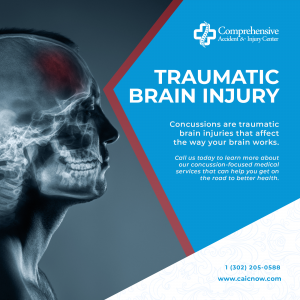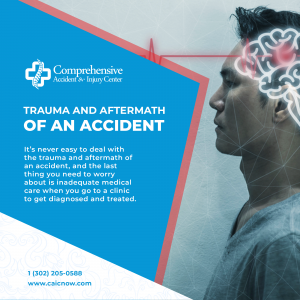Post-Concussion Syndrome Results in Psychiatric Distress
Research Shows that Concussions Can Cause Lasting Emotional Imbalance
Concussions are a form of traumatic brain injury that negatively affects the cognitive functions of the patient. The effects of a concussion can be temporary or permanent based on the severity of the damage, and all concussions usually include headaches, and complications with memory and concentration. Research shows that the lasting1 symptoms of a concussion are not just physiological, but can also extend to the psychiatric well-being of the patient.
How Concussions Affect Psychiatric Well-Being
Emotional changes that can feel like personality changes are actually relatively common after a traumatic brain injury occurs.
According to an article published by Dr.Alina Fong, the symptoms of a concussion can make it appear as the patient has completely altered their personality, but the truth is that their personality is still intact under their symptoms.
Dr. Fong states that common psychiatric changes after a concussion include:
General anxiety
Mood swings
Teariness or emotional lability
These emotional changes can arise from physiological alterations regarding how the brain perceives information and processes it. They may also be complex emotional reactions to the changes that the injury brought into the patient’s life.
15%-20% of Concussion Patients Suffer Post-Concussion Syndrome
If the physical or psychological symptoms of a concussion extend for over three months, the patient has developed post-concussion syndrome, and will require extended medical care to help them get their life back into balance again. 15%-20% of concussion patients will have prolonged symptoms that extend past three months. Patients who previously suffered from neuroticism are more likely to report post-concussion syndrome.
Seeking Immediate and Comprehensive Treatment After a Concussion
It is imperative that anyone who faces a concussion seeks comprehensive medical help right away to determine the extent of their injuries and start on a medical intervention plan to manage their symptoms.
"Usually after an accident, many people go to the hospital to get checked out. That's not enough. A hospital will treat the most apparent and superficial symptoms. Meanwhile, issues like concussions and their after-effects for the most part go ignored." said Dr. Jack Norsworthy of Comprehensive Accident and Injury Center2.
Only settling for emergency hospital care after a traumatic brain injury can be a grievous error as the hospital offers temporary and superficial medical solutions. Anyone who suffered a head injury should connect with a concussion treatment medical professional3 today to get a thorough assessment and detailed treatment from specialists who are trained to diagnose and treat TBI or a concussion.
Dr. Jack Norsworthy
Comprehensive Accident and Injury Center
+1 302-205-0588
info@caicnow.com
Visit us on social media:
Facebook
1 https://pubmed.ncbi.nlm.nih.gov/30810394/
2 https://comprehensiveaccidentandinjury.com
3 https://comprehensiveaccidentandinjury.com/concussion-care-traumatic-brain-injury/


